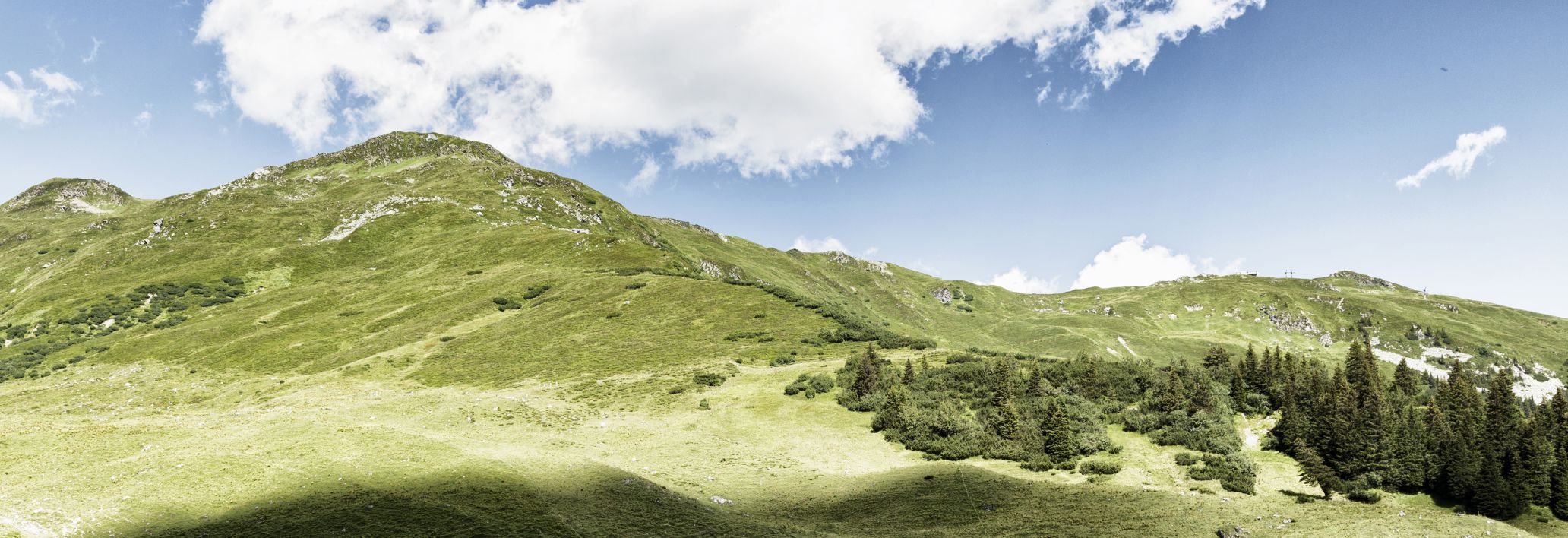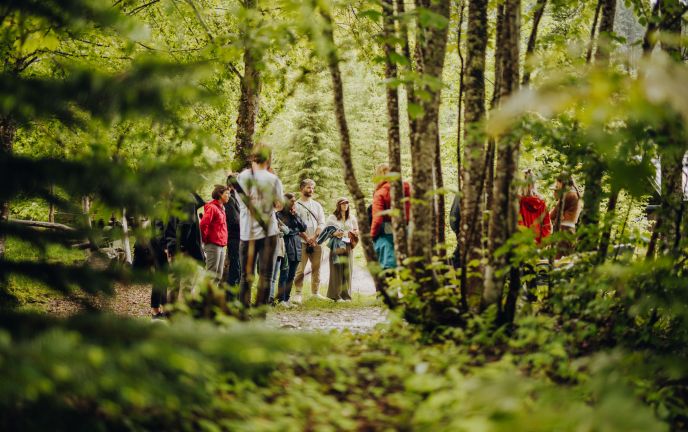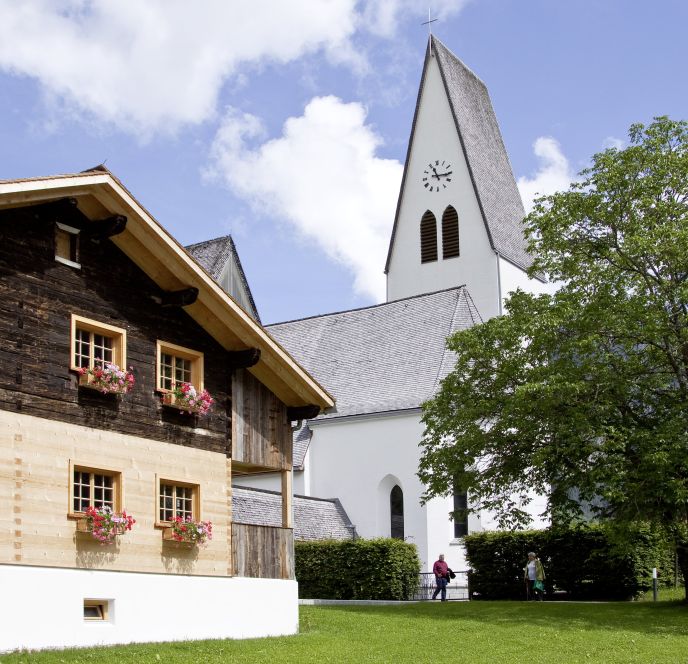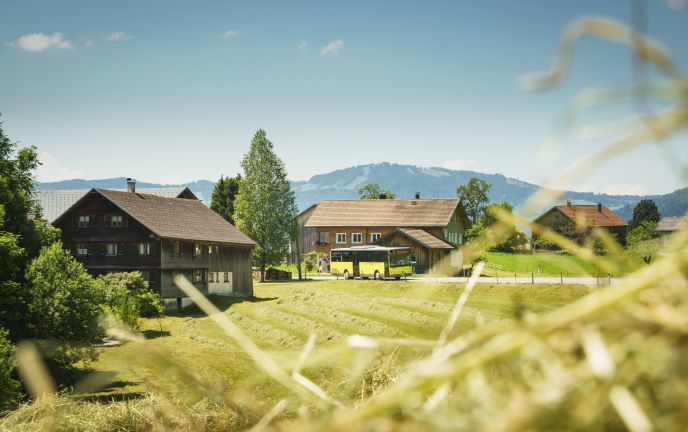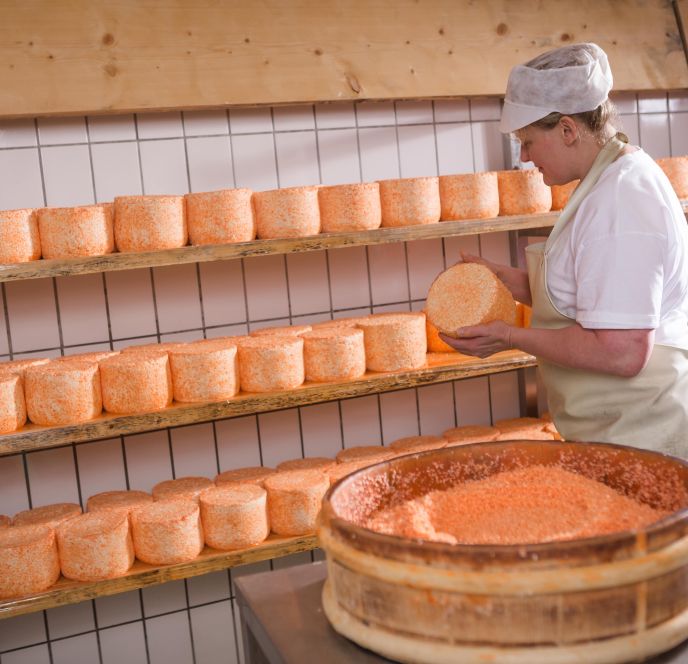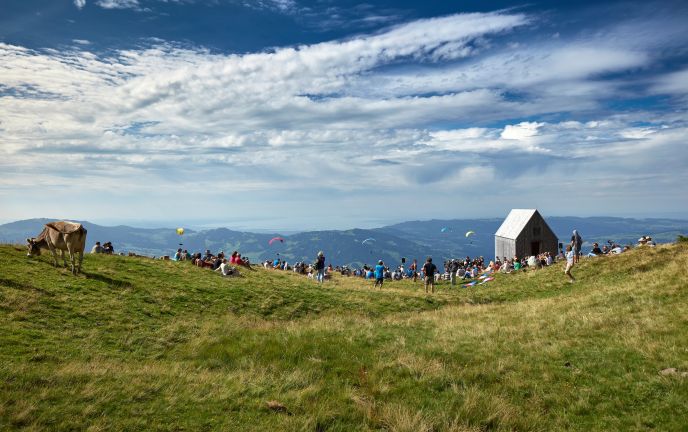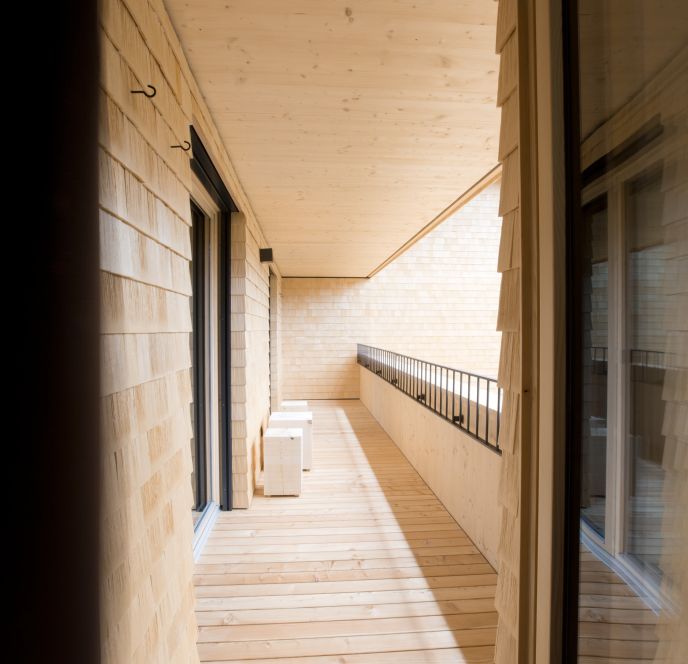Sustainability and events
The topic of sustainability is very important to Vorarlberg as a region.
The topic of sustainability is very important to Vorarlberg as a region.
Vorarlberg is home to congress centres and conference hotels that have been the recipients of sustainability awards. Even more businesses are to be encouraged in future to obtain certification and conduct events at their premises on a sustainable basis. The desire is for sustainable events to become a matter of course in Vorarlberg.
A guideline has been created with Austria’s ‘Green Meetings and Green Events’ eco-badge that sets out both environmental and social requirements to be fulfilled across all aspects of an event. Convention Partner Vorarlberg has been a ‘Green Meetings and Green Events’ licensee since 2013 and is therefore authorised to certify events in Vorarlberg as ‘Green Meetings or Green Events’.
The ‘ghörig feschta’ regional programme supports associations, municipalities and other organisations in the planning and implementation of sustainable events. The aim is to provide food and drink that have mainly been produced and processed in the region, to make use of the availability of public transport and to generate less waste by employing efficient technologies and recycling.
Regionalism, sustainability and hospitality are emphasised as the strengths of tourism in Vorarlberg. In this regard, it focuses on all-year quality tourism with a healthy balance between high-quality offerings and a high level of responsibility for nature and the environment.
First-rate and healthy food is produced in Vorarlberg and the diversity of its cultivated landscape is being preserved through sustainable agriculture and alpine farming. Great emphasis is also being placed on the expansion of organic farming activities. Vorarlberg’s farmers produce high-quality foods and position it sustainably on the domestic market within the framework of such organically grown and regional initiatives as the KäseStrasse Bregenzerwald (Cheese Trail), Biosphärenpark Großes Walsertal (Biosphere Park), bewusstmontafon and Klostertaler Bauerntafel.
Vorarlberg has also set its sights on alternative modes of mobility. Vorarlberg was the first model region for electromobility with electricity sourced entirely from renewables and continues to promote the growth of e-mobility. Vorarlberg is also the No. 1 cycling state – in no other federal state in Austria that many trips are run by bicycle. Bus and rail connections in the country are being extended, running times are being increased and the expansion of the rail infrastructure is being actively encouraged. Pilot regions for sustainable guest mobility are being established for tourists.
Vorarlberg is one of the safest regions in the world and the population’s trust in security organisations is high. The special geographical location means that it’s important to maintain and develop regional security structures.
Volunteering plays a major role in Vorarlberg. Around half of all people living in Vorarlberg are engaged in some kind of voluntary work, e.g. in the emergency services and cultural associations, thus strengthening social cohesion. The region’s security architecture is built largely on volunteer work.
It has set itself the goal of becoming the place to live with the most opportunities for children by 2035. The education sector plays a key role in this regard as it is to offer the best possible future opportunities for all children, regardless of origin or social status. The scope to enjoy healthy food and more exercise is being expanded at kindergartens and elementary schools. The inclusion of children with special needs is being continuously expanded in Vorarlberg’s schools. Greater emphasis is being placed on all-day and year-round childcare services to encourage children in a holistic way and to enable professional life to be balanced with family life.
In July 2019, Vorarlberg’s state parliament was the first in Austria to declare a ‘Climate Emergency’ and, at the same time, it passed a comprehensive package of measures to initiate significant steps aimed at protecting the climate.
Vorarlberg has set itself ambitious energy and climate goals with its Energy Autonomy 2050 policy that it has already started to put into practice, namely to cover its entire energy requirements from renewables by 2050. The policy requires buildings, for example, that are built after 2021 to be able satisfy their demand for heating both spaces and water as well as cooling without the need for fossil fuels.
The now 46 e5 municipalities, almost half of all municipalities in Vorarlberg, are indispensable partners where achieving the goals set out in the Energy Autonomy Policy is concerned. (The e5 programme supports Austrian municipalities in the modernisation of their energy and climate protection policies and as a consequence helps them save energy and costs.)
